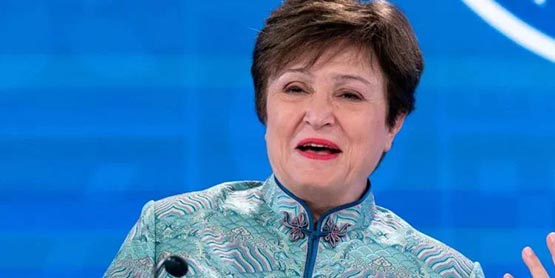
Last week, the U.S. Securities and Exchange Commission (SEC) approved 11 Bitcoin spot ETFs, a major milestone for the cryptocurrency industry. These approvals are expected to promote wider adoption of Bitcoin.
However, Kristalina Georgieva, President of the International Monetary Fund (IMF), emphasized in an exclusive interview with Yahoo Finance on the 15th that the U.S. dollar is still the U.S. dollar and cryptocurrency is just an investment tool: Our point of view is that currencies and assets must be distinguished. When talking about cryptocurrencies, you are actually talking about an asset class. Cryptocurrencies may have value behind them, and in that sense, there may be a chance that cryptocurrencies will be safer and less risky, or they may not be... but investing is riskier at the moment, and cryptocurrencies are not currencies, more like An asset management fund.
Coinbase Chief Financial Officer Alesia Haas believes that the Bitcoin spot ETF is an important step in promoting wider adoption of cryptocurrencies. She expects this move to attract trillions of dollars of capital flowing into the cryptocurrency market. At the same time, Morgan Stanley’s latest report also pointed out that cryptocurrency forms such as Bitcoin, stablecoins and central bank digital currencies (CBDC) have the potential to drive global “de-dollarization”. The emergence of these digital assets could change the reliance on the U.S. dollar in the global financial system, driving increased global adoption and acceptance of cryptocurrencies.
However, IMF President Kristalina Georgieva believes that cryptocurrencies are still far from being able to compete with the US dollar: If this day really exists, it is also very far in the future. I think it is meaningless to talk about this. Why is the US dollar the dominant currency today? Because of the size of the U.S. economy and most importantly the depth of the U.S. capital market. So, personally, I'm not in a hurry to switch dollars to other currencies. That doesn't mean you shouldn't diversify, but I'm not too worried about Bitcoin competing against the U.S. dollar. There are a few things that might make it possible. I don't sleep well, but that's not one of them. Kristalina Georgieva last month stressed the need for cryptocurrencies to be regulated because of the risks they pose to financial stability. She also said that large-scale adoption of crypto-assets could affect the effectiveness of monetary policy transmission, capital flow management measures and fiscal sustainability, mainly due to fluctuations in taxation.
The IMF and the Financial Stability Board (FSB) released a joint policy roadmap in September last year, stating that banning cryptocurrencies cannot completely eliminate their risks. Rather, comprehensive regulation and oversight of cryptocurrencies is the baseline to address the risks they pose to macroeconomic and financial stability.
The above is the detailed content of IMF chief says cryptocurrencies do not have the potential to compete with the U.S. dollar and are merely assets, not currencies. For more information, please follow other related articles on the PHP Chinese website!




